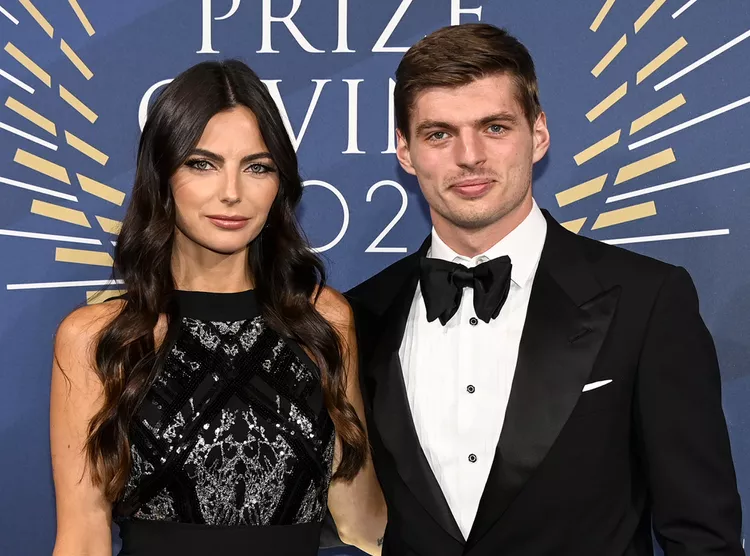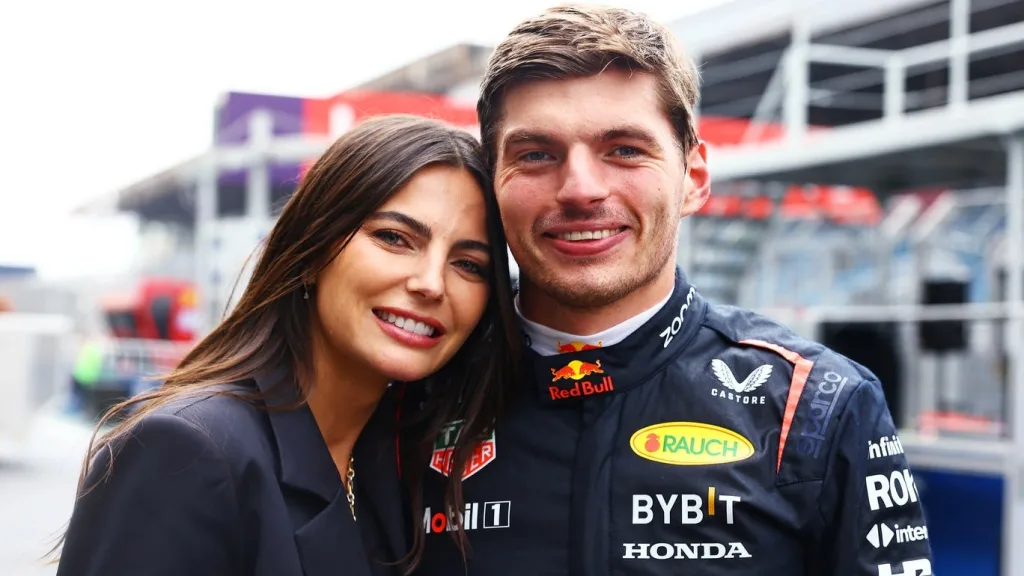The world of Formula 1 is synonymous with speed, precision, and unrelenting competition. Yet, behind the helmets and high-octane rivalries, a growing number of drivers are embracing a role that demands just as much skill and dedication: fatherhood. Max Verstappen, the four-time world champion, has joined this exclusive club with the birth of his daughter, Lily, marking a new chapter for the Dutchman and highlighting a unique subset of the F1 grid—drivers who balance the demands of racing with the joys and challenges of parenting.
Max Verstappen
On May 1, 2025, Max Verstappen and his partner, Kelly Piquet, welcomed their first child, a daughter named Lily, just before the Miami Grand Prix. The announcement, shared via a heartfelt Instagram post, read, “Welcome to the world, sweet Lily. Our hearts are fuller than ever – you are our greatest gift.” The news came as Verstappen, 27, skipped media day in Miami to be with Piquet in Monaco, underscoring his commitment to family despite the pressures of a championship fight.
Verstappen’s entry into fatherhood places him alongside Nico Hulkenberg as one of only two fathers on the current F1 grid, following the departures of Sergio Perez and Kevin Magnussen at the end of the 2024 season. The Red Bull star, known for his fierce competitiveness and laser-focused driving, has expressed excitement about this new phase. In an interview with ESPN at the Miami Grand Prix, Verstappen shared, “I already have some experience that had me prepare for [my] child… I think that will work out, maybe in the future we can do it together (PlayStation or sim stuff).” His enthusiasm was palpable, with fans on X noting how “Max looks so happy” about becoming a dad.
Kelly Piquet, daughter of three-time F1 champion Nelson Piquet, brought her own perspective to the announcement. As a mother to Penelope, 5, from a previous relationship with former F1 driver Daniil Kvyat, Piquet acknowledged the emotional complexity of such news, writing, “I understand how these announcements can be challenging for those who are longing for a child.” Her sensitivity added depth to the couple’s public joy, resonating with fans and highlighting the personal side of F1’s glamour.
Verstappen’s rivals have dismissed the notion that fatherhood might slow him down on the track. Mercedes’ George Russell, locked in a championship battle with Verstappen, stated, “We’ve seen drivers in the past win races, win championships who have got kids.” Nico Hulkenberg, the grid’s other dad, echoed this sentiment, saying, “Everyone is obviously different, but personally, I don’t feel that’s the case.” Some, like Verstappen’s father, Jos, a former F1 driver, argue that fatherhood “only motivates” drivers further. Posts on X even speculated that fatherhood might make Verstappen “even faster,” reflecting the sentiment that personal milestones can enhance professional drive.

Nico Hulkenberg
Until Verstappen’s news, Nico Hulkenberg held the title of F1’s sole father on the 2025 grid. The 37-year-old German, driving for Sauber, has a daughter and has been the only active father since Perez and Magnussen left the sport. Hulkenberg welcomed Verstappen to the “dad club” with humor, noting, “It’s a fun fact that I was the only dad since Checo and Magnussen left at the end of last year, so yes, he’s joining that club.” He also offered practical advice, hoping Lily would be a “good sleeper” and wishing the new parents luck in their journey.
Hulkenberg has been vocal about debunking the myth that fatherhood hampers a driver’s performance. Speaking to Planet F1, he dismissed the idea that having a child affects racing ability, stating, “I don’t feel that’s the case.” His experience as a father has not diminished his competitiveness, as evidenced by his continued presence on the grid at a time when many drivers face pressure to retire. Hulkenberg’s ability to juggle family life with F1’s demanding schedule serves as a model for Verstappen, who is navigating this transition in the spotlight.

The departed dads: Perez and Magnussen
Before 2025, Sergio Perez and Kevin Magnussen were part of F1’s fatherhood contingent. Perez, Verstappen’s former Red Bull teammate, and Magnussen, Hulkenberg’s ex-Haas teammate, both lost their seats at the end of 2024, leaving Hulkenberg as the sole dad until Verstappen’s announcement. Perez, a father of two, was known for his resilience on the track, while Magnussen, also a father, brought a gritty determination to his races. Their exits highlight the transient nature of F1, where even accomplished drivers face uncertainty, regardless of personal milestones.
F1 dads through the years
Fatherhood in F1 is not a new phenomenon, though it remains relatively rare given the sport’s demanding nature and the young age of many drivers. Historically, several world champions have balanced racing with parenting, proving that family life need not compromise performance. Lewis Hamilton, a seven-time champion, referenced this legacy when congratulating Verstappen, noting, “It’s an amazing, such a special thing.”
One notable example is Sebastian Vettel, a four-time champion, who became a father during his F1 career and continued to compete at the highest level. Vettel’s focus on family later influenced his decision to retire in 2022 to spend more time with his children, a choice that resonated with fans. Similarly, Kimi Raikkonen, the 2007 champion, raced as a father and maintained his “Iceman” edge, winning races well into his late 30s. These examples support Russell’s assertion that “drivers who had children have won world championships in the past.”
The debate over whether fatherhood affects performance has persisted in F1 lore. Some argue that the added responsibility makes drivers more cautious, potentially reducing risk-taking. However, Jos Verstappen’s perspective—that fatherhood “only motivates”—is backed by drivers like Hulkenberg and Russell, who see no evidence of a slowdown. The Telegraph reported that Verstappen’s rivals believe fatherhood might “only improve him as a driver,” suggesting that the emotional fulfillment of family life could enhance focus and resilience.


